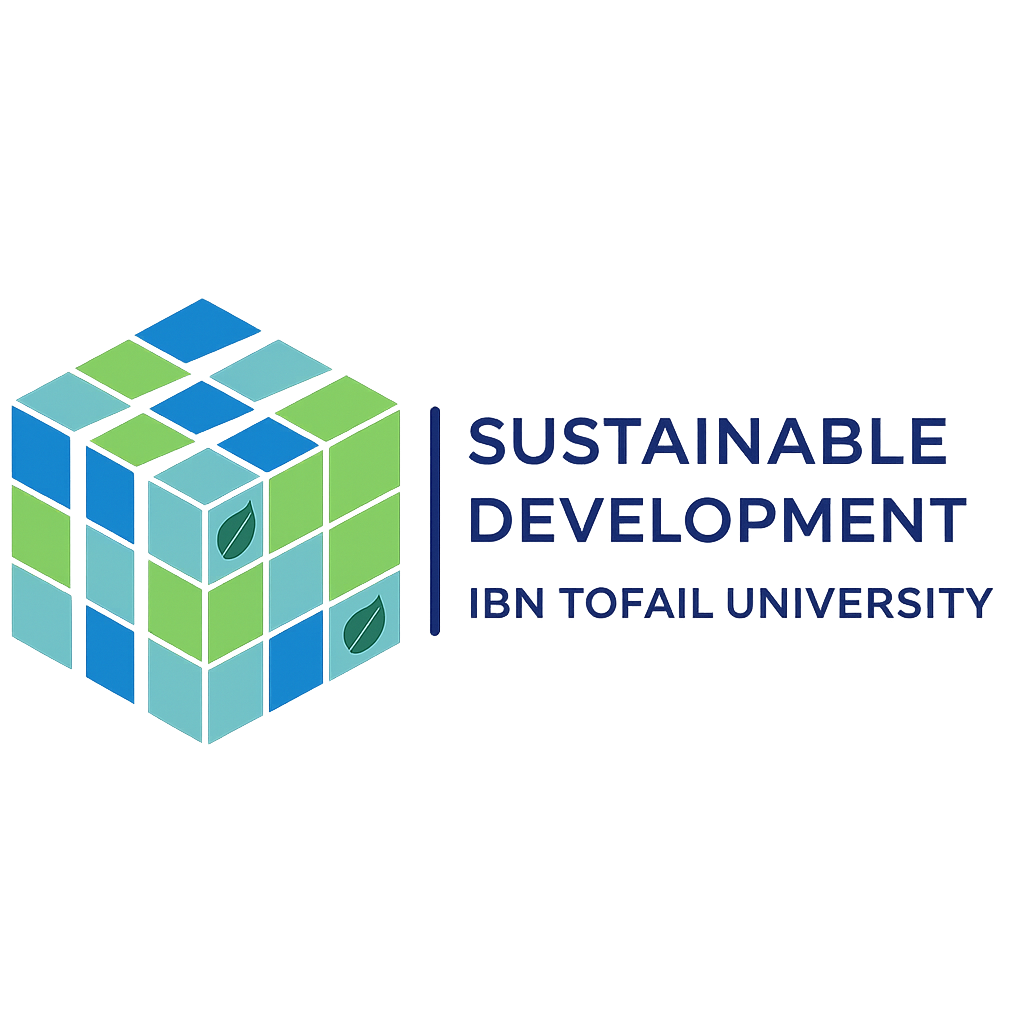Event : 12 May 2025
Partners : Ibn Tofail University – Ministry of Solidarity, Social Integration and Family – UNICEF – European Union
Children may not vote, legislate, or lead institutions, but they are the very core of the values, priorities, and future that those institutions shape. They speak in questions, dreams, fears, and hopes, and when a nation listens with purpose and responsiveness, it lays the foundation for a more equitable and enlightened society. On May 12, 2025, Morocco took a historic step toward institutionalizing this principle during the National Meeting for the Mobilization Campaign on the Territorial Implementation and Quality of Child Protection Services, held at the Bouregreg Conference Palace in Sale.
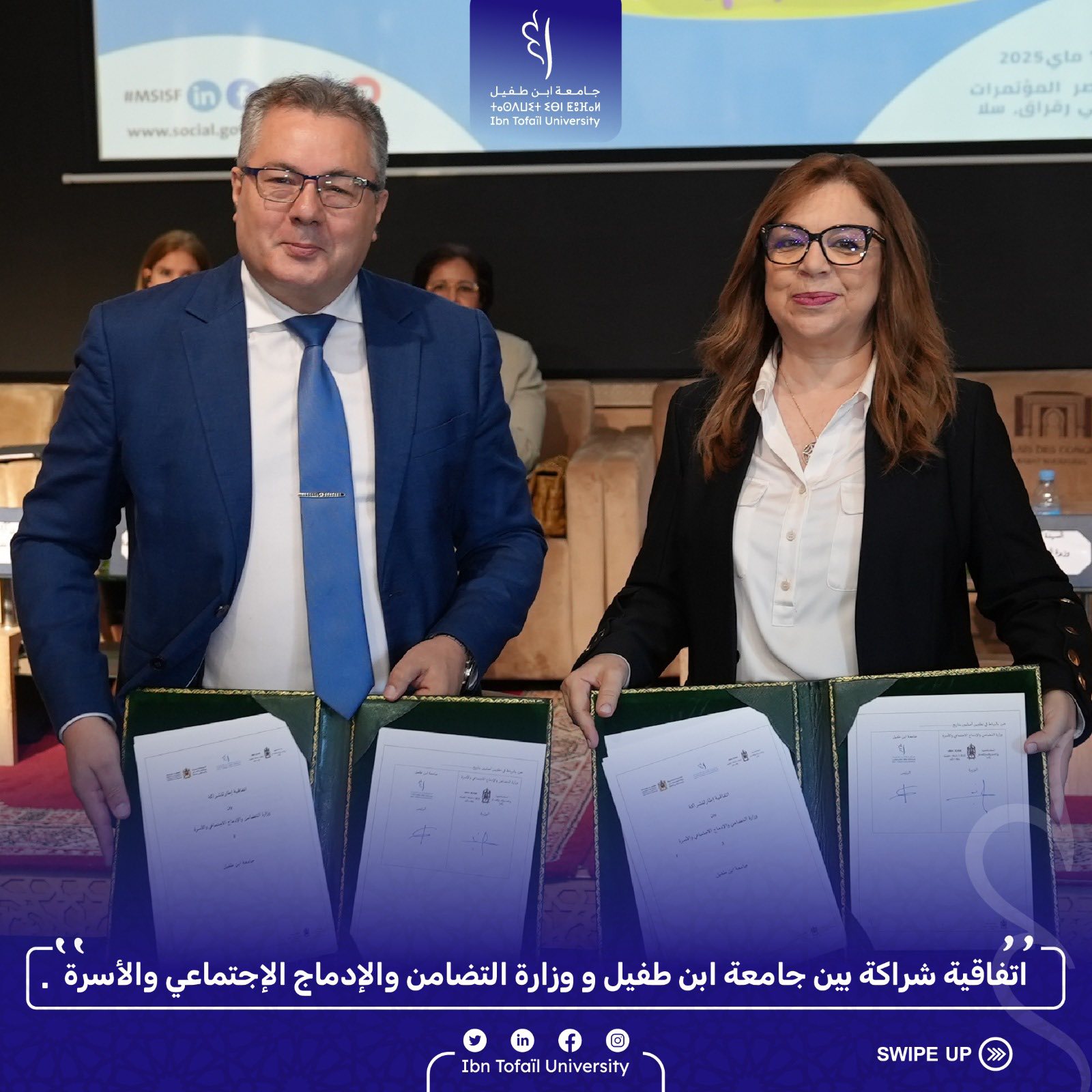
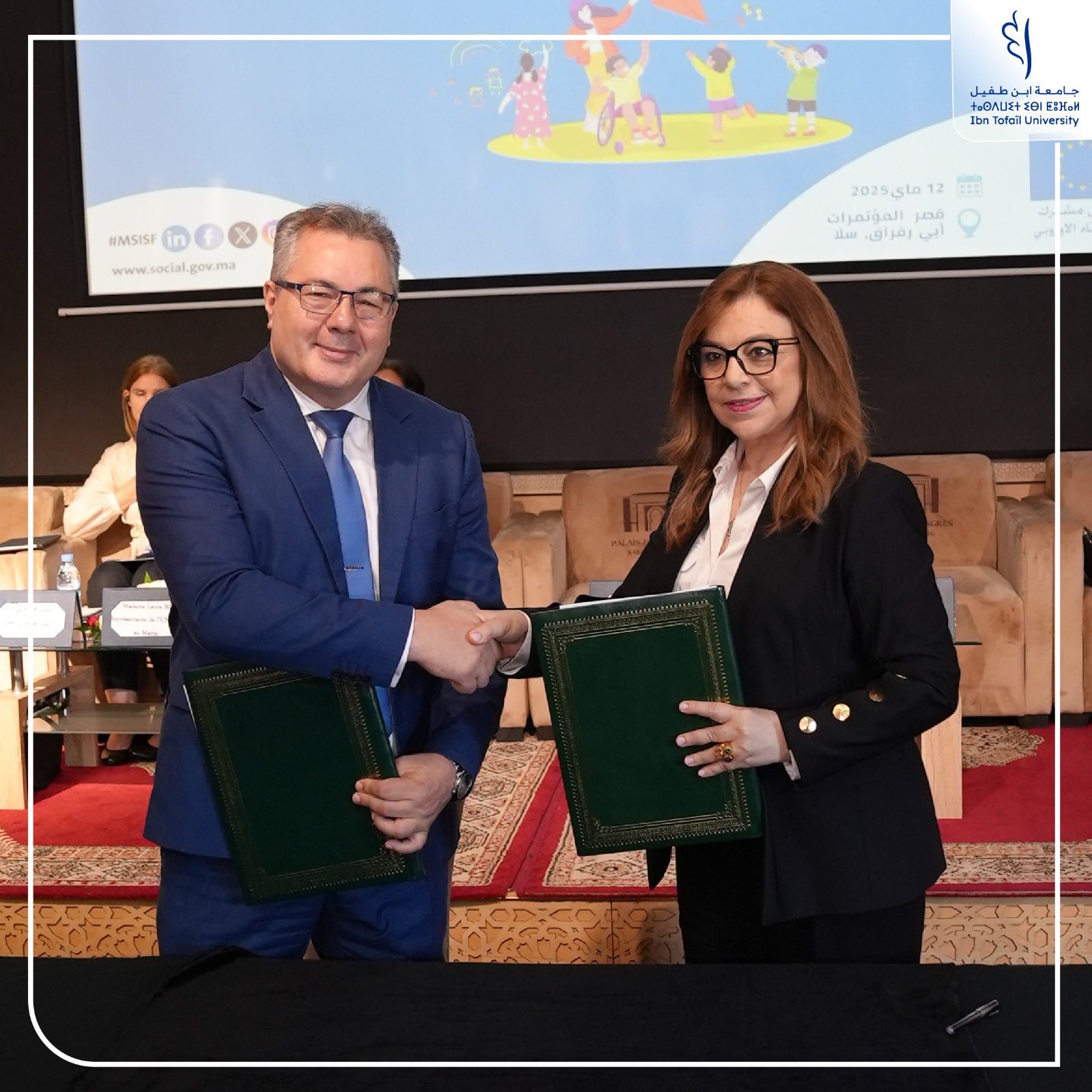
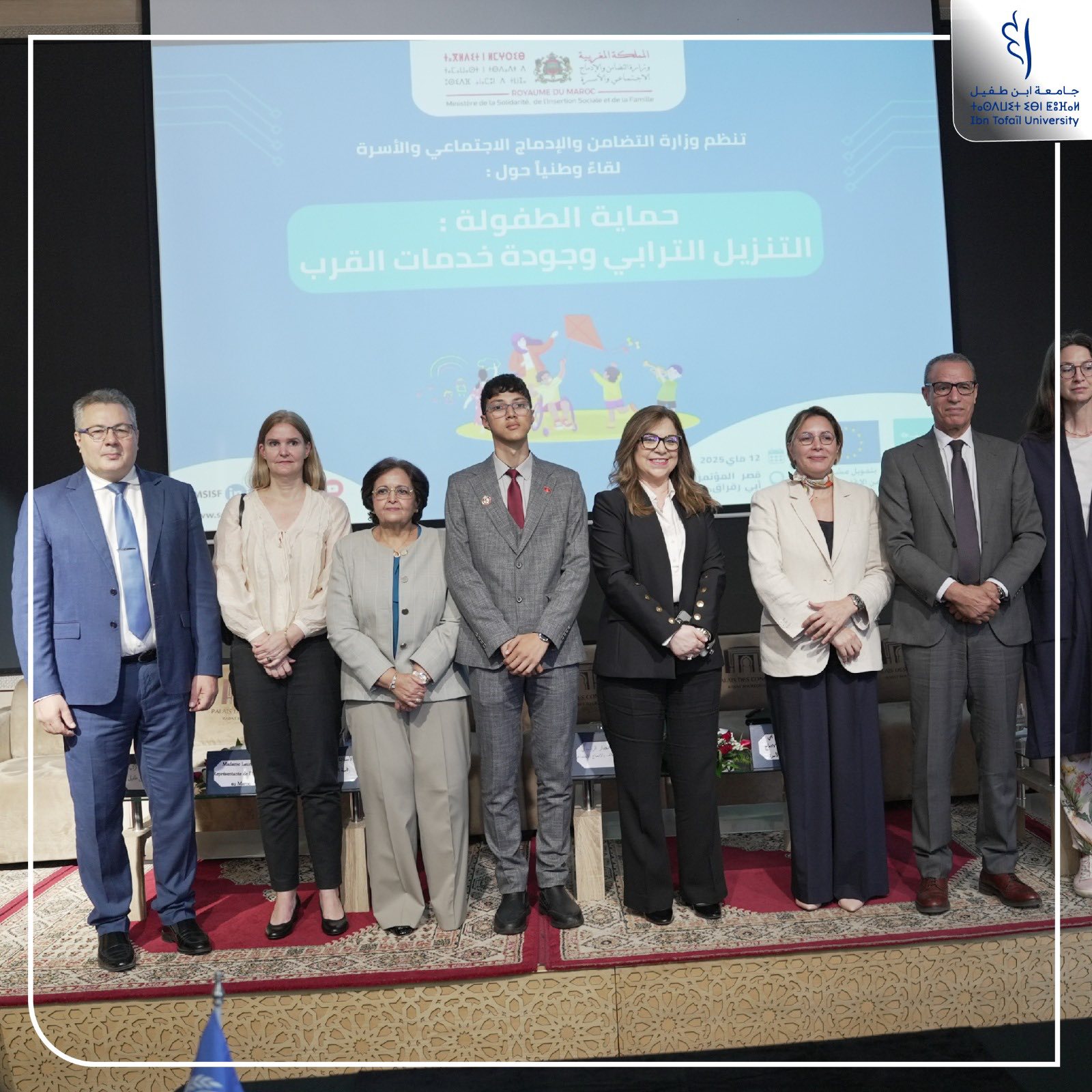
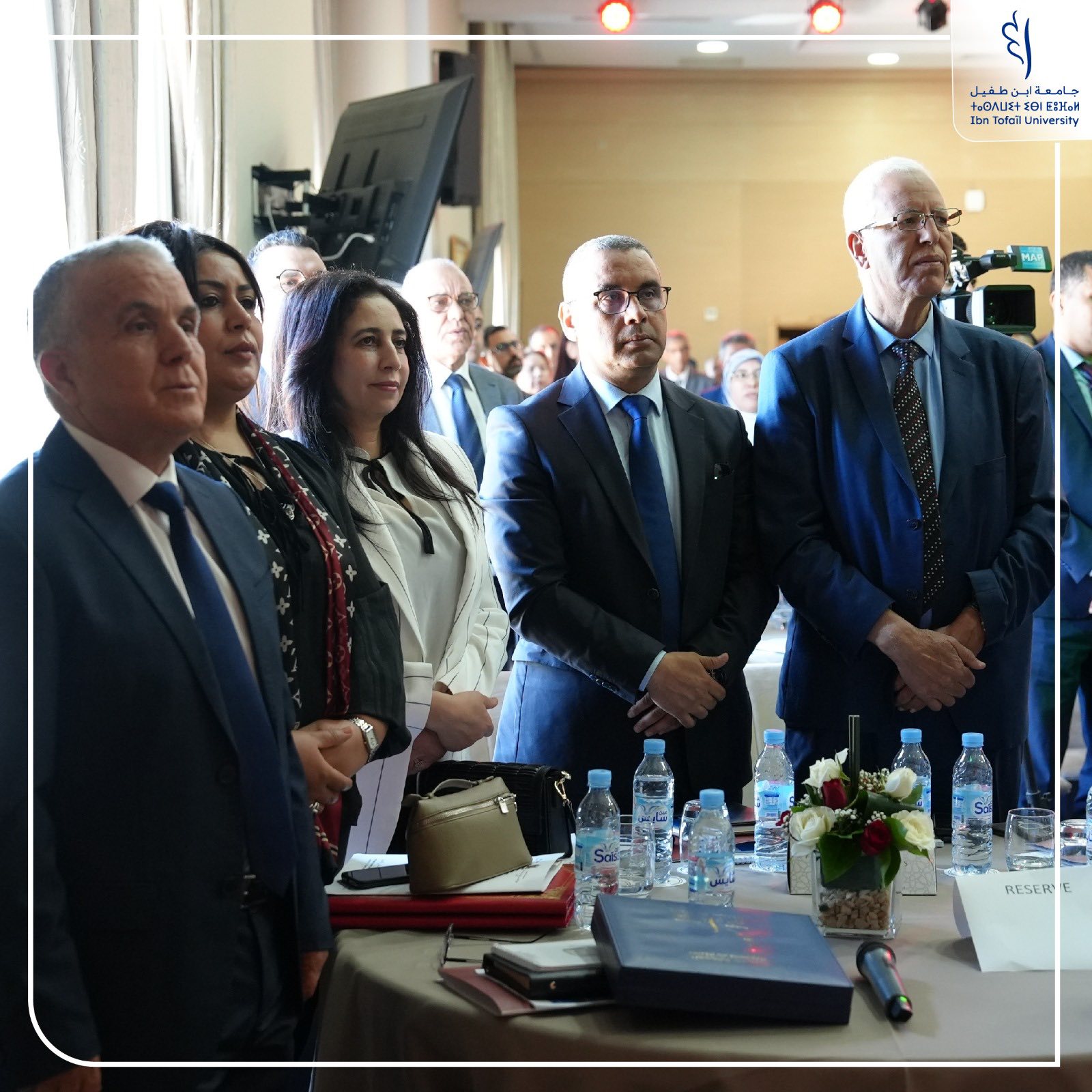
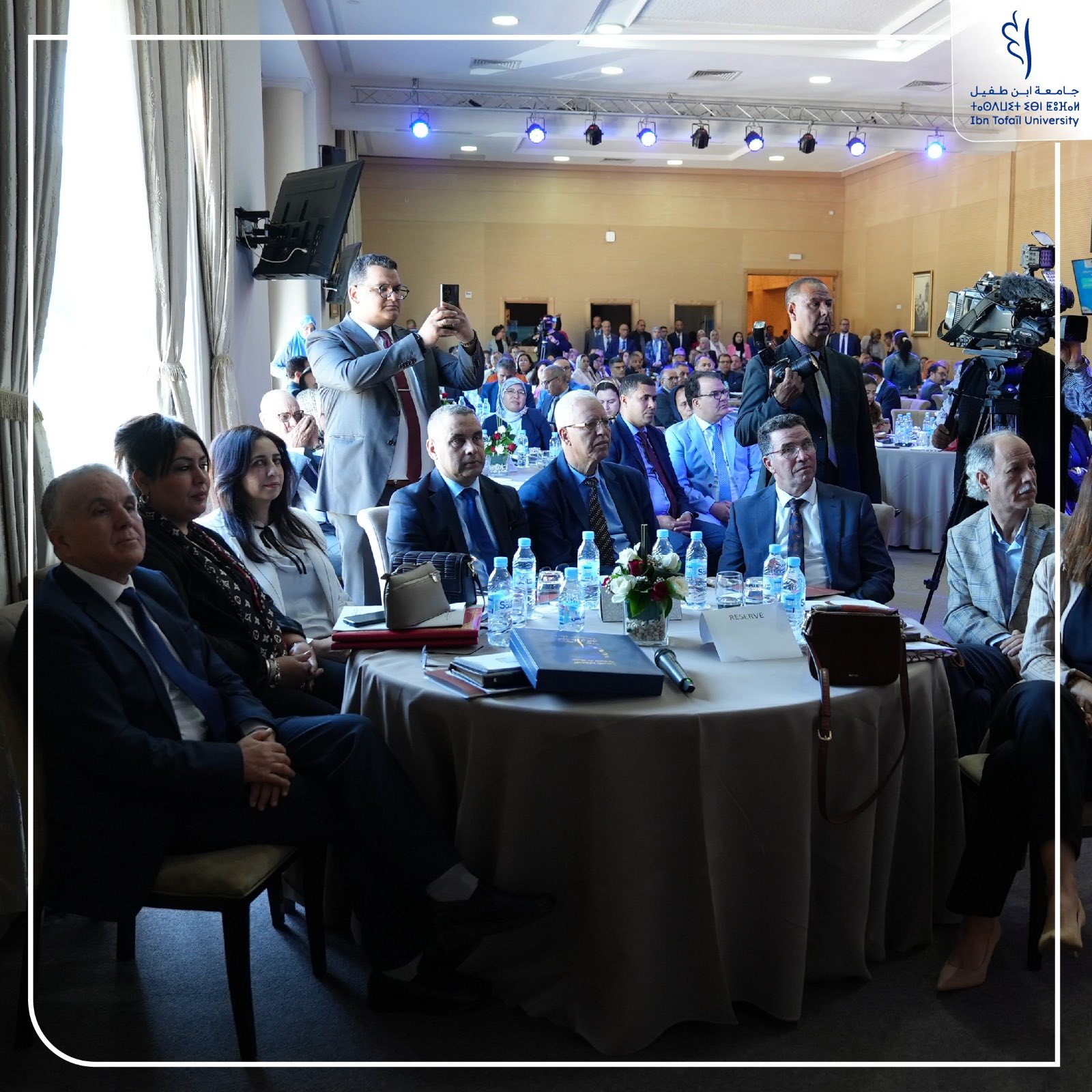
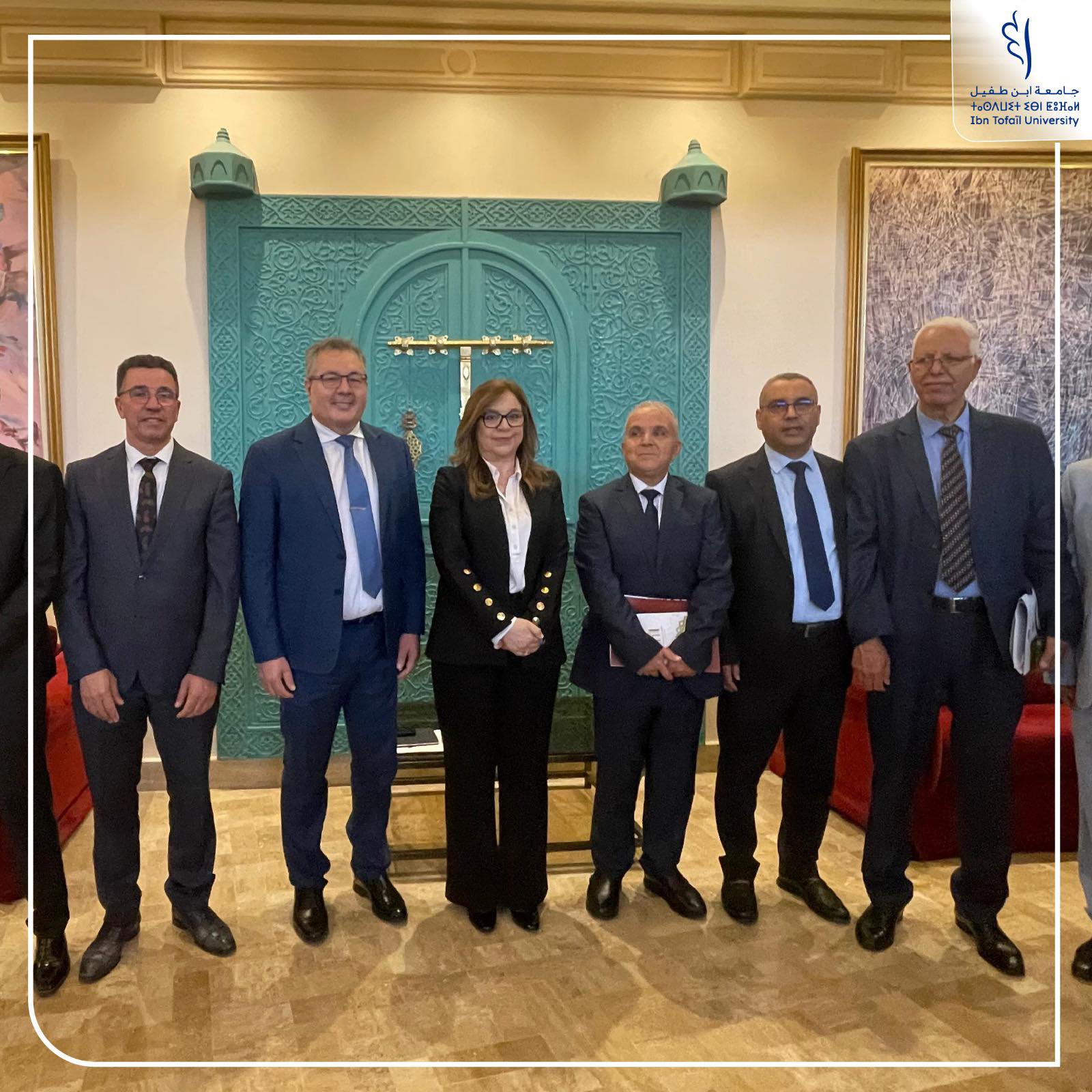
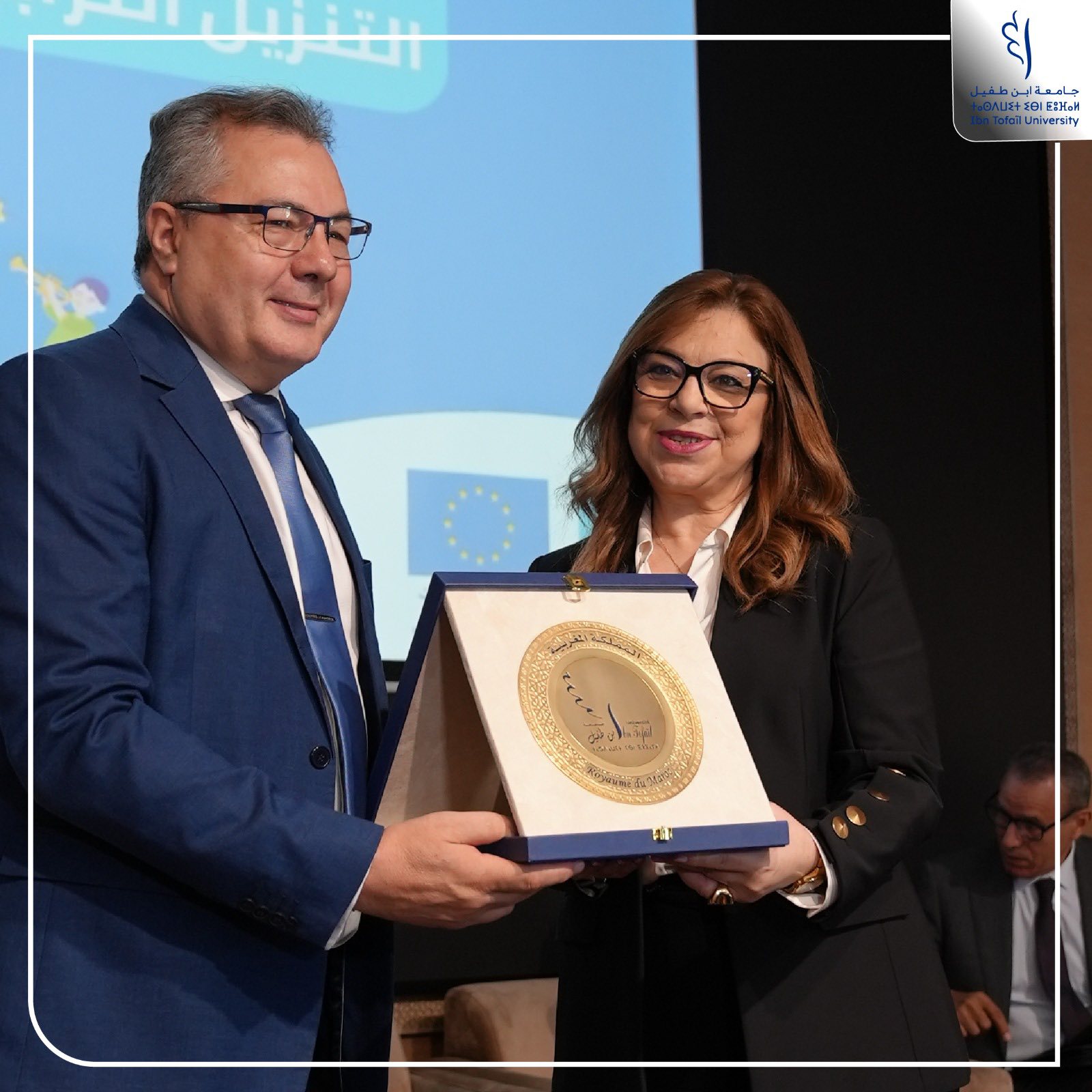
Organized by the Ministry of Solidarity, Social Integration and Family (MSISF) in collaboration with UNICEF and with the strategic support of the European Union, this high-level gathering was far more than a symbolic event. It marked a national shift, turning child protection policies into regional, human-centered, and measurable realities. The meeting also aligned with preparations for the National Day of the Moroccan Child (May 25), serving as a moment of reflection, recommitment, and action.
At the heart of this initiative stood Ibn Tofail University, represented by its President, Mohamed Larbi Kerkeb, who personally signed a strategic partnership agreement with the Ministry. This agreement formalizes the university’s dedication to integrating academic research, youth engagement, and innovation into Morocco’s child protection system.
This marks a critical evolution for Ibn Tofail University: from being an educational institution to becoming a catalyst of social change. The university’s commitment includes research-driven contributions, fieldwork, policy evaluation, and the mobilization of its academic community to support local child protection services across regions; especially in under-resourced areas.
The event gathered an impressive range of public figures and institutions. The opening session was chaired by Ms. Naïma Ben Yahya, Minister of Solidarity, Social Integration and Family, who stressed the urgency of reinforcing child protection at the territorial level. Other key attendees included Mr. Abdeljabbar Rachidi, State Secretary in charge of social integration; Ms. Amina Oufroukhi, representative of the Presidency of the Public Prosecution Office ; Ms. Ghizlane Benjelloun, Vice President of Morocco’s National Observatory for Children’s Rights; Ms. Laura Bill, UNICEF Representative in Morocco ; representatives from the Child Parliament; and university presidents from both Ibn Tofail University and Abdelmalek Essaâdi University.
One of the event’s highlights was the signing of two landmark partnership agreements with the participating universities. For Ibn Tofail University, this partnership is not symbolic; it’s a roadmap to bridge academic expertise with community realities, ensuring that child protection is not confined to policy papers but felt in homes, schools, and municipalities.
The meeting also saw the launch of the Joint Action Program 2025–2026 between the Ministry and UNICEF, aimed at building stronger territorial child protection systems, enhancing intersectoral coordination, and ensuring that children’s rights are upheld through quality, localized services.
Throughout the day, expert panels and workshops emphasized interdisciplinary collaboration, the strengthening of local institutions, and the role of academia in designing practical, evidence-based solutions to protect children. These conversations weren’t abstract; they were driven by urgency and grounded in real regional needs.
This initiative echoes Morocco’s broader vision of building a stronger social state, one that places the rights, safety, and well-being of children at the very heart of governance and human development. It also reflects the nation’s moral and legal commitment to protect children, not as a sectoral task but as a shared national responsibility, interwoven across ministries, universities, municipalities, families, and global partners.
By participating in this national milestone and committing itself through concrete actions, Ibn Tofail University has demonstrated that academic institutions can and must be active agents of national resilience. The university’s involvement reflects a deep understanding: a society cannot build forward if it leaves its children behind.
